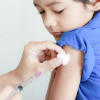
 Dr. KK Aggarwal
Dr. KK Aggarwal
Everything You need to know about Outbreak of Novel Corona virus Infection in china
How much of details are we aware of recent outbreaks of coronavirus in China?
The number of people already infected by the mysterious virus that emerged in China is much higher than the official figures suggest. There are already more than 200 confirmed cases of the new coronavirus. But, experts estimate that the figure could be about more than 1,700. It is known that three people died from respiratory diseases in the city of Wuhan, in central China, in December.
What is the latest news?
Authorities in the central city of Wuhan said 136 new cases were confirmed during this weekend, and that a third person died from the virus. So, late Sunday, officials said 170 people were being treated in the hospital, nine of them in serious condition.
In Shenzhen, authorities said a 66-year-old man showed symptoms of the virus after a trip to Wuhan as well. According to the state news agency Xinhua, the National Health Commission of China confirmed Monday that two cases in China were due to transmission from person to person. This contradicts what was previously said by the commission, from which it was assured that there had been no such cases.
How did they calculate the figures?
The key to the magnitude of the problem lies in the cases detected in other countries. While the outbreak arises mostly in Wuhan, there have been two more cases in Thailand, one in Japan, and one in South Korea. All of them related to people from Wuhan, or who have visited the city. It is impossible to obtain the exact number.
Wuhan International Airport serves a population of 19 million people, but only 3,400 a day take international flights. Detailed calculations which were shown on the Internet before being published in a scientific journal, showed a figure of 1,700 cases.
How is the virus transmitted?
Zoonotic virus can be transmitted through direct contact between animals, and humans. But, there are many other forms of infection, through food or so-called vectors: a mosquito, a tick or another insect can transport a host pathogen to another organism without getting sick. In addition, zoonosis can also be transmitted through food, by eating meat or animal products. If they do not get hot enough or if they were prepared under unhygienic conditions, they could also be a source of infection. Compared to the main cases of SARS, and MERS, the current outbreak of coronavirus is small, but experts said it should not be underestimated.
Therefore, China is exercising caution regarding the celebrations of the Chinese lunar New Year at the end of January. Millions of people travel by buses, trains and airplanes to celebrate the holidays. Authorities will step up efforts to prevent the outbreak of pneumonia from spreading further during the holiday period which includes ensuring adequate disinfection in major public transportation centers like the airport, and train stations.

What to do for precautions?
The Medical history of Coronavirus
As with any virus, experts recommend reducing the risk of infection through good health, and hygiene practices. Only six types were known – four of them cause mild symptoms similar to those of a cold, while the other two were sadly famous in 2002. It was 21st of December when WHO in China confirmed that they were unknown of the actual causes of pneumonia in Wuhan.
That time Municipal Health Commission of China stated that people should avoid visiting fish markets, and stop buying other kinds of live animals, raw meats, etc. which could be the reason behind virus attribution. The market has been closed until further notice. At present, eight patients are already out of danger and, according to reports, have already left the hospital. Once the virus is identified, experts are one step closer to finding the causes of the mysterious lung disease.
Read more - latest update Coronavirus in india
How to protect yourself?
After taking viral samples from patients, and analyzing them in the laboratory, officials from China, and WHO concluded that the infection is a coronavirus. The analysis of the genetic code of the new virus shows that it is more closely related to SARS than to any other human coronavirus.
The researchers, and doctors of WHO have jointly issued a statement warning travelers in Wuhan to avoid animal markets, and contact with animals or raw meat. People must avoid the sic, and any possible ways to become exposed. Before consulting the doctor, the practice or clinic should be informed about the travel history, and symptoms.
Prevention and treatment
No vaccine or specific treatment is currently available, although there are several vaccines, and specific treatments under development. The treatment is supportive, and depends on the patient's clinical condition. As a general precaution, people visiting farms, markets, stables or other places where there are dromedaries or, other animals should take general hygiene measures.
In particular systematically wash their hands before, and after touching an animal, and should avoid contact with sick animals.
The consumption of raw or undercooked animal products carries a high risk of infection by different organisms that can cause diseases in humans. Products of animal origin duly processed by cooking or pasteurization do not present any danger for consumption but must be handled with care to avoid contamination by contact with raw products.
Conclusion: How actively government has shown response?
Now, the Chinese government officials accepts that this virus can spread further with human transmission, and may take a massive outbreak. This fact increases the chances of this virus spreading faster and more widely. "The recent outbreak of pneumonia due to the new coronavirus in Wuhan and elsewhere must be taken seriously," President Xi Jinxing said in his first public statement about the crisis. "The relevant party, government and department committees at all levels must put people's lives and health first." The UN agency convened a committee of experts to assess whether the outbreak is an international emergency, and what steps should be taken to handle it.
Read More - WHO declares global health emergency due to the outbreak of coronavirus

Dr. KK Aggarwal
Recipient of Padma Shri, Vishwa Hindi Samman, National Science Communication Award and Dr B C Roy National Award, Dr Aggarwal is a physician, cardiologist, spiritual writer and motivational speaker. He was the Past President of the Indian Medical Association and President of Heart Care Foundation of India. He was also the Editor in Chief of the IJCP Group, Medtalks and eMediNexus




















Please login to comment on this article